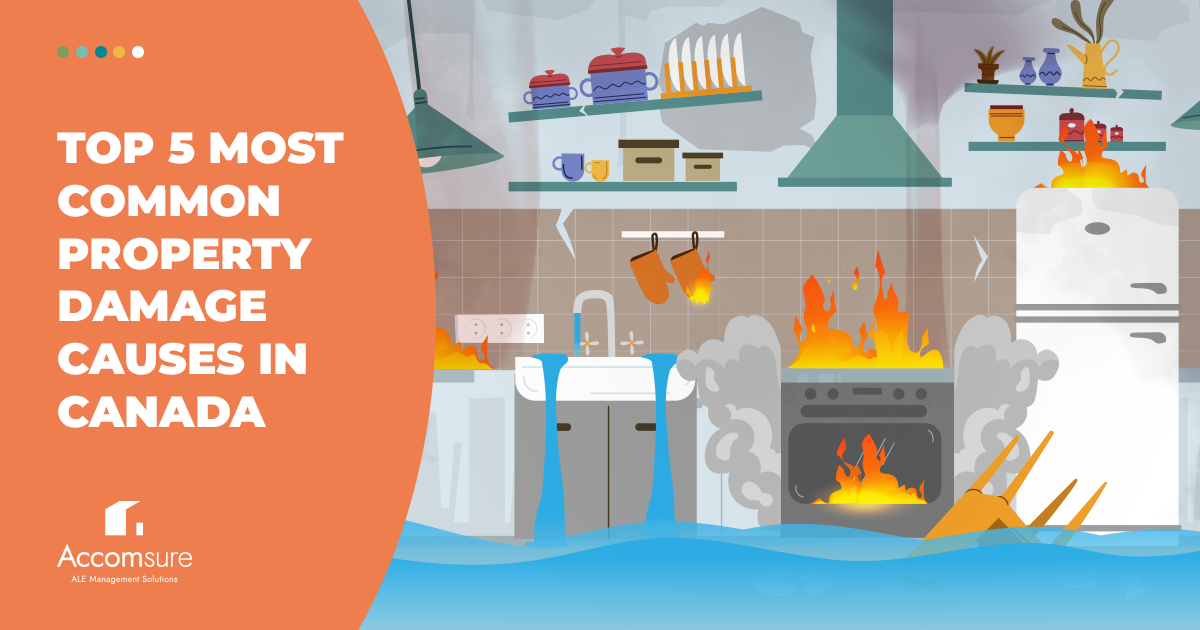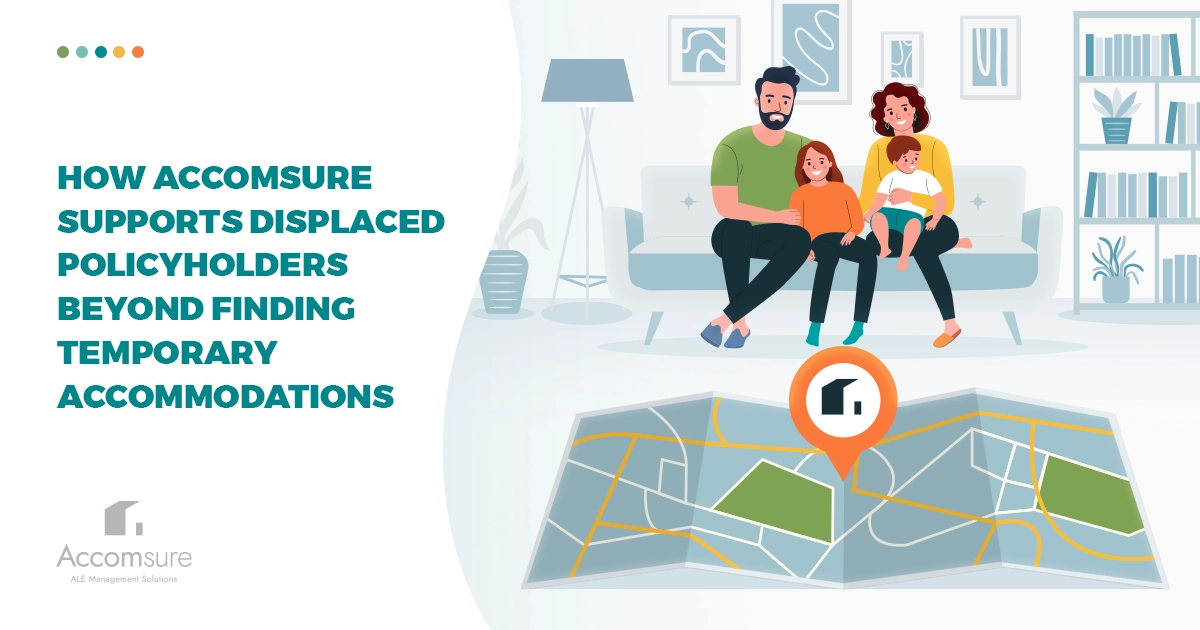As an adjuster who helps policyholders navigate the aftermath of property damage, it’s important for you to be aware of the most common causes of property damage in Canada.
From natural disasters to leaky appliances, understanding the risks of these damages can help you educate your policyholders on preventing damages and support them when disaster strikes.
In this blog post, we’re diving into the top five causes of property damage in Canada with examples of families displaced by these property damages.
1. Natural disasters
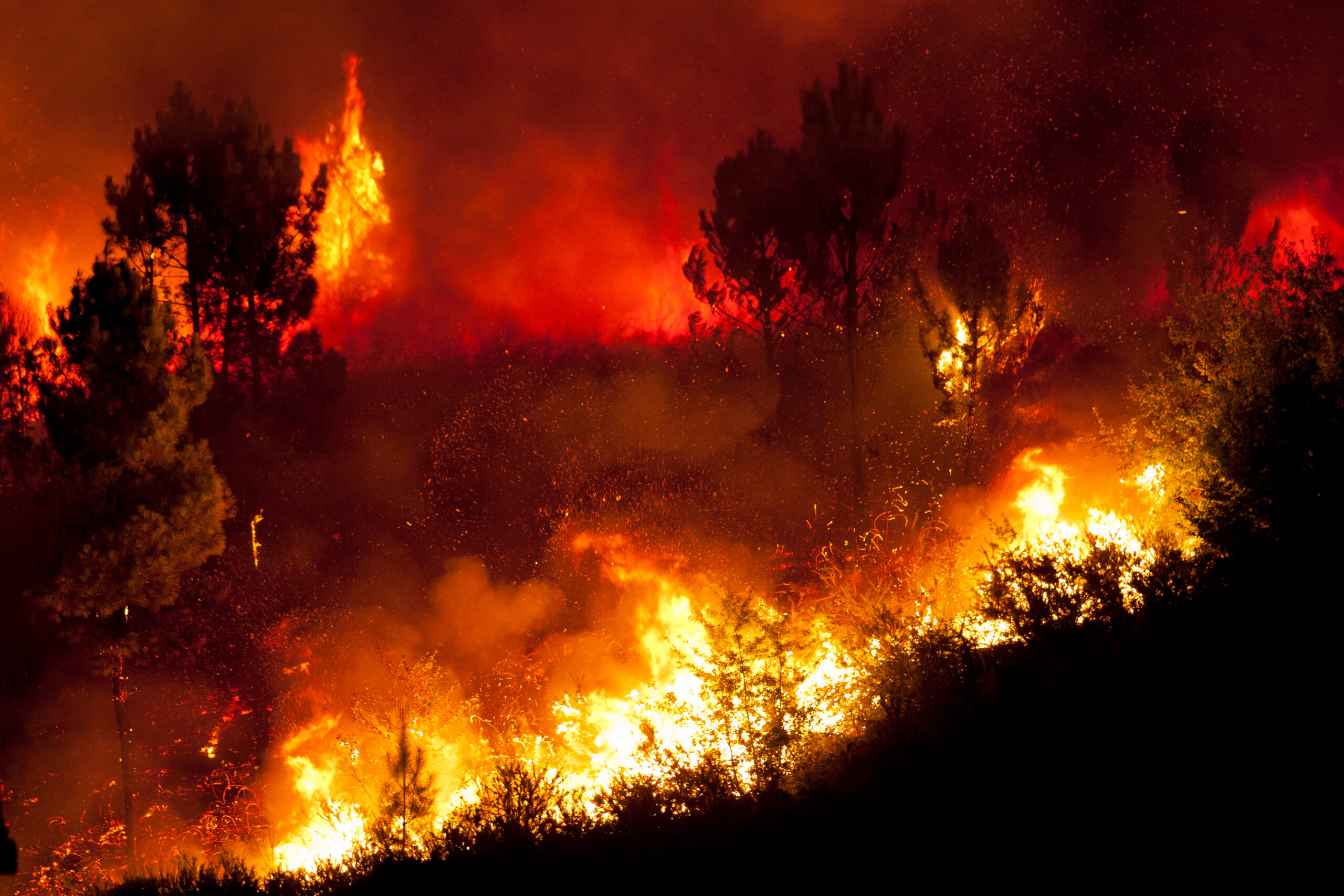
According to Barron’s, natural disasters in Canada cost a whopping $121 billion in 2022 alone. Although we have yet to determine how much natural disasters will cost in 2023, we can only project that it will exceed 2022.
Due to Canada’s diverse landscape and temperature fluctuations, Canada is prone to various natural disasters, including floods, hurricanes, wildfires, hailstorms, tornados, and earthquakes.
These events are often unpredictable and can result in significant property damage, leaving policyholders with high repair costs, emotional distress, and, worse, displacement. The following are the three most expensive natural disasters in Canada over the last three years and how much they cost insurance companies:
- 2022 Ontario and Quebec Derecho Storm: $3.1 billion in insured damages.
- 2021 British Columbia Floods: $675 million in insured losses.
- 2020 Calgary Hailstorm: $1.3 billion in insured damages.
2. Leaking Appliances
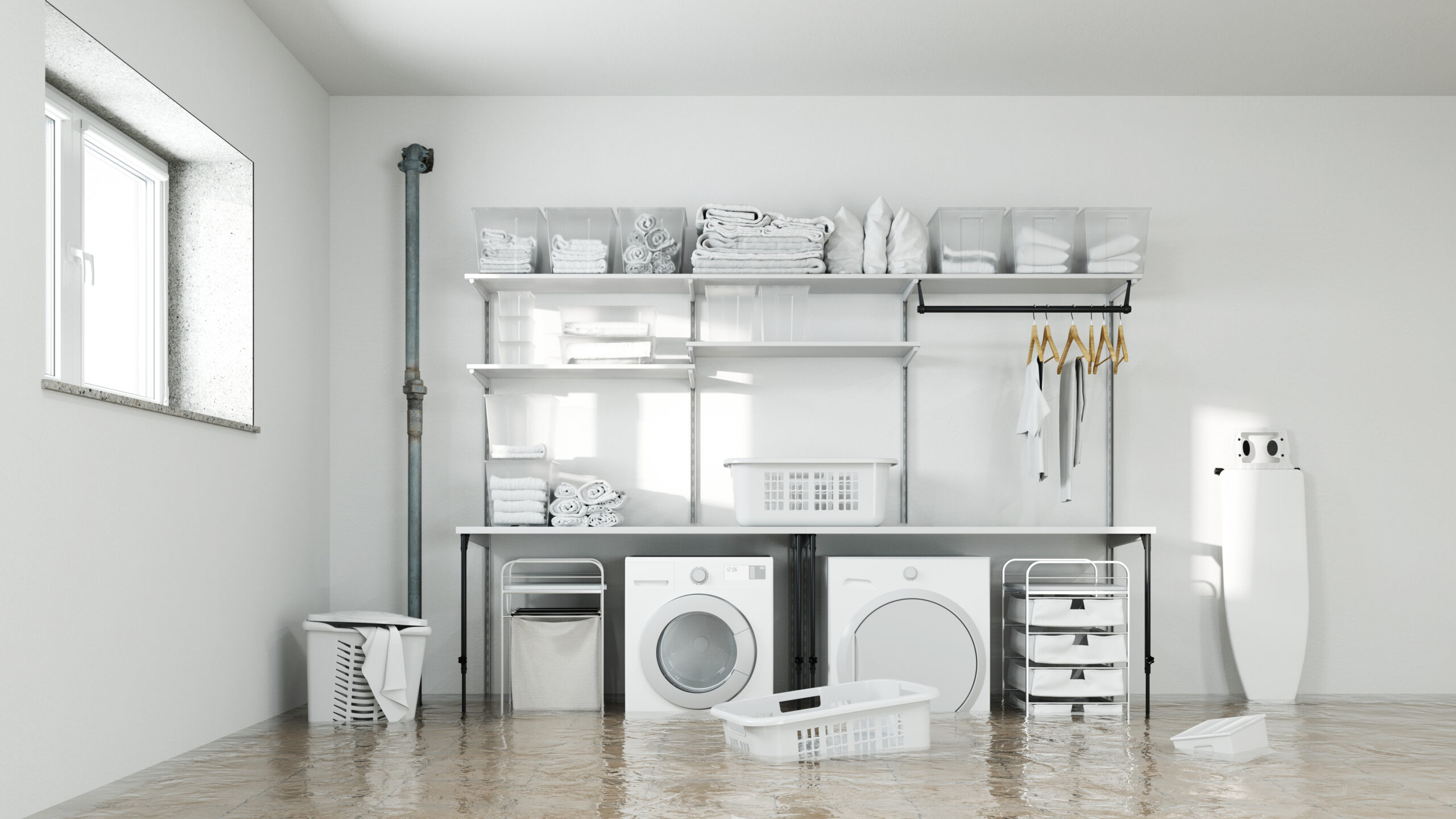
Wasserschaden nach Rohrbruch im Waschkeller mit Waschmaschine und Wäschetrockner
For example, in 2022, a leaking fridge left a British Columbia condo owner a painful $100k insurance deductible. This damage was so severe as the water from the fridge damaged the owner’s condo and leaked into neighbouring condo units.
If policyholders don’t properly maintain or regularly service their appliances, they may fall victim to a slow leak that causes hidden damages. Not only can water damage floors, but if there are smaller leaks, mould can build up and cause structural damage.
Sometimes policyholders buy a lemon appliance or continue using appliances far after their life expectancy. Below we’ve included a “cheat sheet” of appliance lifespans so you can educate your policyholders and hopefully reduce the amount of leaking appliance insurance claims:
Refrigerator: 10-20 years.
Toilet: 10-15 years.
Washing machine: 10-13 years.
Dishwasher: 10 years.
Policyholders can take preventative measures by inspecting their appliances frequently, replacing worn parts, and addressing small leaks to reduce the chances of a flood due to a leaking appliance.
3. Electrical fires
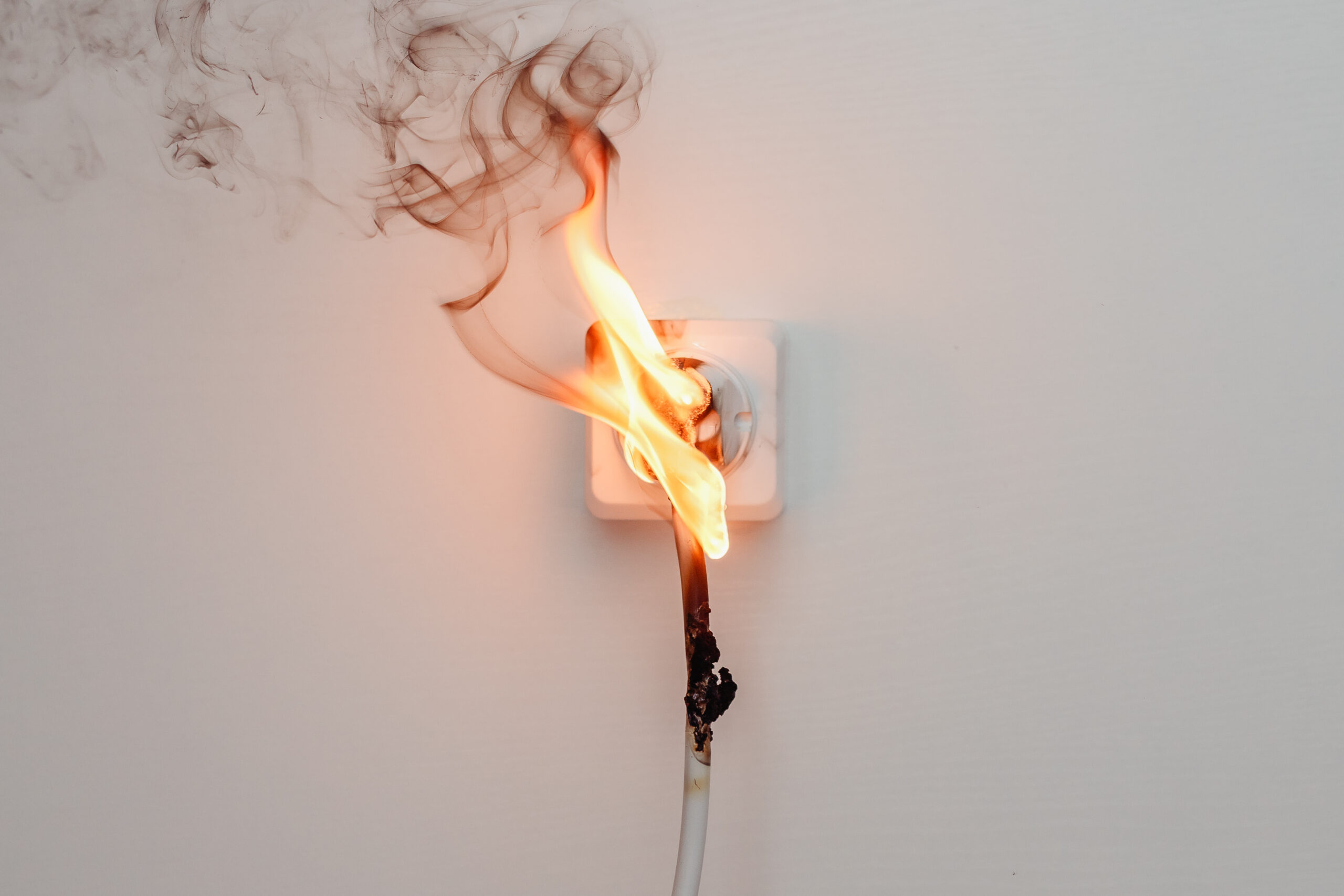
The following are common electrical fire causes based on a 2017 study by researchers from the University of the Fraser Valley (UFV) and the British Columbia Injury Research and Prevention Unit (BCIRPU).
Laundry rooms
16.5% of electrical fires occur in laundry rooms due to problems with washers and dryers.
Common living spaces
12.6% of all electrical fires occur in common living spaces due to faulty extension cords, outlets, surge protectors, space heaters, and permanent wiring.
Basements
12.3% of electrical fires occur in basements due to issues with switchboards, extension cords, basement laundry room washers and dryers, and permanent wiring.
Garages
16.6% of electrical fires occur in garages due to problems with batteries, extension cords, and permanent wiring.
There are many ways policyholders can prevent electrical fires, including:
- Hiring an electrician to assess wiring and appliances.
- Avoiding overloading outlets.
- Replacing damaged or worn electrical cords.
Policyholders can reduce the chances of electrical fires and displacement by taking these precautions seriously.
4. Barbeques

In the summer of 2022 in Gravenhurst, Ontario, a BBQ fire caused $1 million in damages due to the BBQ being too close to the home’s exterior, causing the nearby wall to catch fire.
The general rule for BBQs is to keep them at least three metres away from homes, fences, and overhanging branches or trees.
To better protect your policyholders from displacement due to barbeque fires, you can provide them with these Government of Canada barbeque safety tips:
- Always close the shut-off valve on propane tanks after use.
- Turn burner controls to appropriate positions rather than hotter for a faster cook time.
- Ignite the barbeque using the igniter switch.
- Never lean over the barbeque.
- Wait for the gas to go away before igniting the flame if your barbeque doesn’t light right away.
- Never leave the grill unattended.
5. Kitchen fires
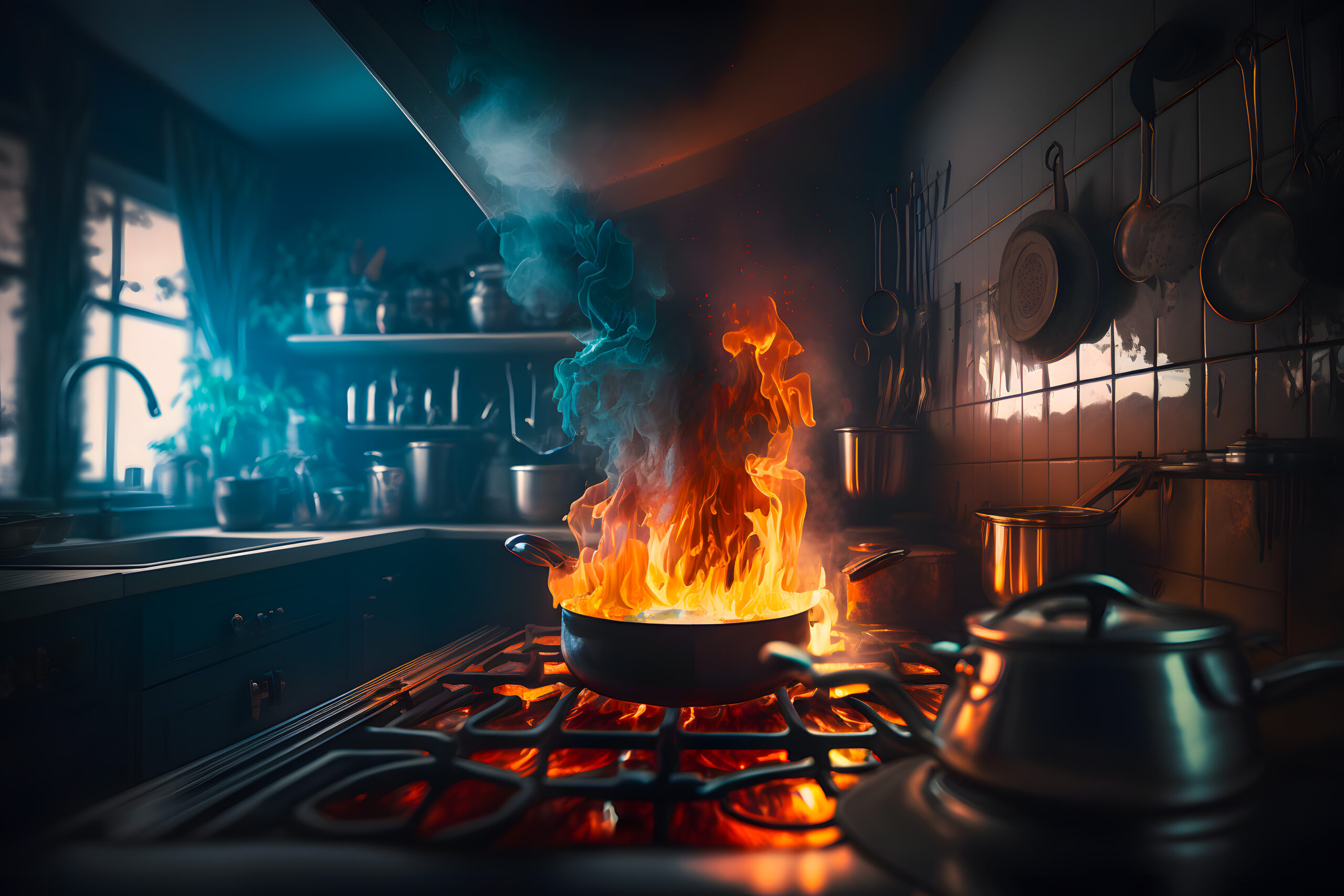
In April of 2023, three people in Niagara, Ontario, became displaced due to careless cooking, causing $250k in damages.
Small flames can quickly escalate into a disaster, especially when policyholders lose control of their cooking. In just a matter of minutes, black smoke can fill homes, causing not only kitchen damage but structural damage that affects other areas of the house.
14,194 house fires between 2005-2014 were caused by cooking mishaps in Ontario alone, estimated at $100 million in total property damage.
Here are some tips from the Ontario Association of Fire Chiefs you can share with your policyholders on best practices when cooking:
- If you leave the kitchen while cooking, turn off the stove.
- Always use a timer when cooking to prevent burning.
- Keep oven mitts, utensils, and packaging away from stovetops.
- Create a “kid-free” zone of at least one metre around the stove.
- If a small grease fire starts, quickly slide the lid over your pan to smother the flame.
What Adjusters Can Do if Policyholders Become Displaced Due to Property Damage
Property damage can strike at any moment. Should your policyholder’s home flood or engulf in flames, be prepared with ALE management services.
At Accomsure, we understand the stress of assisting your displaced policyholders with their immediate needs, especially when multiple policyholders are affected by a disaster.
That’s why we offer ALE management services, so we can support your policyholder with their immediate needs, including finding temporary accommodations, while you focus on rebuilding their life.
If your policyholder falls victim to property damage and becomes displaced, submit a claim with Accomsure.
